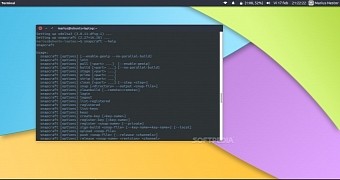Canonical's Kyle Fazzari released today a new maintenance update of the Snapcraft tool that lets application developers package their apps as Snaps for distribution across multiple Linux-based operating systems that support the Snappy technologies.
Coming only 11 days after the Snapcraft 2.31 release that implemented support for resuming Snap downloads when building classic Snaps, better build-packages asset tracking, support for cross-compiling Go parts, and entire support for building an entire ROS project from a single file, Snapcraft 2.32 appears to be a small update that adds support for ROS Lunar Loggerhead in the Catkin plugin, which is primarily targeted at the Ubuntu 17.04 (Zesty Zapus) release.
The Autotools plugin was improved as well to no longer force uniqueness on configflags, cross-compilation support is now available in the Rust plugin, a "--version" command was implemented to show the currently installed Snapcraft version, along with a "whoami" command. Moreover, local can now be specified as source-type in sources, and the snapcore/snapcraft Docker image can now be used in Travis CI, which can run unit tests with mock armhf.
Snapcraft to no longer leak green text in the command-line
The message that is returned when delta is too big was improved as well in Snapcraft 2.32, which seems to no longer leak green text in the command-line. Lastly, pyramid is now used as a router for fake servers during tests, Travis jobs can now be refactored using stages, and it's possible to set up the spread execution in linode, also for tests. A Snapcraft Dockerfile is now available in the source tarball, which you can download right now from the project's GitHub releases page.
Snapcraft 2.32 is targeted at the Ubuntu 16.04 LTS (Xenial Xerus) operating system series as it's the current long-term supported release, but it should soon be available from the main software repositories of other Snappy-enabled Ubuntu releases, such as Ubuntu 16.10 (Yakkety Yak) and Ubuntu 17.04 (Zesty Zapus) so make sure that you update to this version as soon as it lands.

 14 DAY TRIAL //
14 DAY TRIAL //